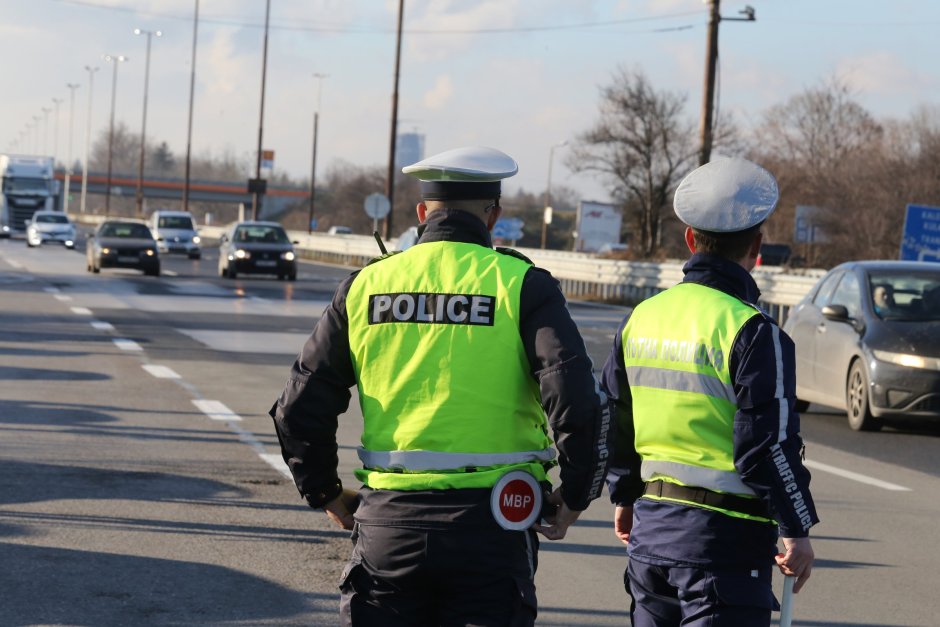A single alert to the Schengen Information System is all it takes to cause huge troubles for a car owner whose car was purchased abroad. In the last three years, more than 1300 people in Bulgaria have parted with their cars temporarily or permanently, according to data provided by the Ministry of Interior to Mediapool under the Access to Public Information Act.
In most cases, these are people who bought their cars completely in accordance with the law, following all proper procedures, and registered them in Bulgaria without encountering any problems. But then suddenly, a claim emerges. And the police seize the cars for further inspection and, possibly, to return the cars from the country of origin.
Only temporary, 60 days
By law, the Ministry of the Interior can temporarily seize an item that has been flagged by another country as wanted. Such notifications can happen through one of two channels: either through the Schengen Information System or via Interpol. The owner can voluntarily hand over the item in question or it will be seized. Once in the custody of the Ministry of the Interior, a 60-day period begins during which the country that initiated the seizure can request its return. If there is no claim for the car after the two months are over, the vehicle must be returned to its owner.
This is where the first major problem comes in. Sometimes the 60-day period is not honored at all. In other words, there are people who have purchase cars from abroad perfectly legally but their car seized without any way to defend themselves. The only option they have is to wait and hope for the goodwill of the Ministry of the Interior.
In the last three years the police have seized 1309 vehicles following alerts from the SIS, the Ministry of Interior says. Another 308 signals have come through Interpol. More than 900 cars have been returned to their Bulgarian owners. Which means all of them should not have been seized in the first place. But, 396 were sent to the originator of the claim. The Ministry of the Interior have not provided details on these cases. The ministry also fails to answer one of the most important questions - in how many instances was the legal 60-day period not respected, and the cars were detained for longer than allowed. The ministry explains not answering with lack of statistical information on this.
Crime and punishment
The Ministry of Interior Act lists several scenarios in which the seized property can end up not being returned to the owner. The possibilities are: if the item is the object or means by which a crime was committed in Bulgaria, if the item is evidence, if it is a frozen asset, if its surrender would impede an ongoing investigation, or if its possession is prohibited in Bulgaria.
Apart from these cases, and if there is no further claim on the car, it should be returned its owner. But in practice in each case there are nuances, which in certain cases make return almost impossible.
A quintessential example is a court drama in Stara Zagora, which dragged on for two years. In 2016 a local woman bought a car second hand from a Greek citizen. It was later found that the car was wanted on a SIS alert from Greece. The woman handed the car voluntarily so the situation can be cleared. But instead of waiting 60 days, the car remained with the authorities for almost six months. In mid 2017, she requested for the car to be returned to her, but the chief of local police denied the request. She appealed the decision to the administrative court. What followed was the typical running back and forth between institutions. Ultimately it took two years for the court to rule that the car should be returned to the woman.
Thus, in mid 2019 the saga ended, but the details in the case are telling. It was revealed that initially, the car was reported stolen in Greece. The previous owner, a Greek woman, claims that when the car was stolen, all the documents were in it. Once the car was retrieved, without the documents, she could not prove ownership. Fast forward to this case, once the car was seized, there was no second claim for the car. But, the Greek state requested that the two women – the previous and current owners – be put in contact in order to establish how the vehicle was purchased in Bulgaria. Based on this request, the local police deny the return of the car and make her subsequently wait two years to get it back.
This is a rare example, though. Most times the law abiding good Bulgarian owners will fail in their attempts to counter the actions of the Ministry of Interior because they virtually have no legal protection. When challenging a return order issued by the Bulgarian police, the case is not about the ownership of the property, but only about whether the MIA has grounds for taking particular course of action. Such grounds are almost certainly found because there is an outstanding SIS alert and a corresponding claim for the car to be sent to its original country. This is usually enough.
The question of who the owner is, is a completely different issue. Or, as stated in a Montana Administrative Court decision from 2020.
"In judicial theory and practice, the uncontentious opinion has been imposed that disputes over substantive rights (property rights) are considered and resolved between the parties according to the rules of the civil law proceedings."
In other words, if a buyer is cheated because the car they bought was stolen, and then the police seize it to return it, they can seek their rights only through a civil lawsuit against the seller. Beyond that, the options for compensation are very limited.
Fraud, schemes and more of the same
One of the biggest problems in cases like this is the fact that the Bulgarian authorities can very easily register cars bought from abroad. Their new owners are undoubtedly law abiding and fulfil all the requirements. They submit all the necessary documents and are entitled to the cars. In many cases, though, the SIS alert appears after the car has been sold and the new owner suffers a double blow – they’ve already spent the money and now the car has been taken, too.
The most frequent reason for a car to be flagged in the system is theft, repossession (in cases with unpaid loans) and insurance fraud, the Ministry of Interior informed Medipapool. One such case has been proceeding in the Silistra Administrative Courtin for the past two years.
A family is appealing local police's decision to return their car to Norway. The car had been bought from a private individual in Varna. The family registered the car with the police in Silistra in early 2017 without any problems. A few weeks later, at the end of April, an alert was sent through the SIS flagging the car from Norway as stolen. The Norwegian authorities claim the car was actually bought against a loan from Santander Consumer Bank AS. The loan taker is a Bulgarian citizen who stops paying back the loan in 2016. The car is then sold to the family from Silistra. The family appeals the decision to return the car to Norway but the court rules that the Ministry of Interior had acted correctly.
There is something else special about this case: the court in Silistra posed a question in the preamble stage to the European Court of Justice to clarify on certain points of the procedure. The answer states that countries are obliged to work on SIS alerts regardless of the circumstances surrounding the SIS alert. This means the Bulgarian authorities must seize the car, if found, even though they may have doubts about how the procedure came about in the foreign country. Because of this, the court dismissed the appeal as the order was issued in accordance with the law.
The police point to another problem in the story. According to them, often the car that was bought abroad does not have documents indicating it is purchased against a loan. In such cases, there is no way to know that the seller is not the actual, full rights owned and so there is no reason to refuse registration with Bulgarian authorities. But once the police is informed that the car is wanted, they are now obliged to seize it.
Do not give voluntarily
There is one more important detail in the car repossession procedure. Often owners would hand over the car voluntarily because they are convinced that a mistake has been made and everything will be cleared up. Subsequent developments however reveal they were wrong. There are instances in which the courts have upheld that the fact that the cars were handed over voluntarily equals consent and thus the person has no right to appeal.
An example for such a case is a 2019 decision by the Burgas Administrative Court, which points to the fact that the wanted car was handed over to the Ministry of Interior with a voluntary surrender protocol, signed by the head of the district office of Pomorie. The company that owns the car appealed but the court held that this protocol is not an administrative act and it "is legally inconsequential to the owner of the vehicle.”
"In this particular case, validating an agreement, such as the voluntary surrender of property, is intended to control the completeness of the circumstances regarding the record and does not create any additional legal realities for the surrenderee. That is not the case with the compulsory seizure of the item, which, although it is called a 'protocol', constitutes a typical administrative act, a compulsory administrative measure, because it implements the deprivation of the actual possession of the item. However, so far as the vehicle was handed over voluntarily by the applicant company by means of a protocol, there is no administrative act subject to judicial review,' the court stated and dismissed the appeal.
The Bulgarian version of this text can be found here.
За честна и независима журналистика
Ще се радваме, ако ни подкрепите, за да може и занапред да разчитате на независима, професионална и честна информационно - аналитична медия.
 0 коментара
0 коментара
Екипът на Mediapool Ви уведомява, че администраторите на форума ще премахват всички мнения, съдържащи нецензурни квалификации, обиди на расова, етническа или верска основа.
Редакцията не носи отговорност за мненията, качени в Mediapool.bg от потребителите.
Коментирането под статии изисква потребителят да спазва правилата за участие във форумите на Mediapool.bg
Прочетете нашите правила за участие във форумите.
За да коментирате, трябва да влезете в профила си. Ако нямате профил, можете да се регистрирате.





